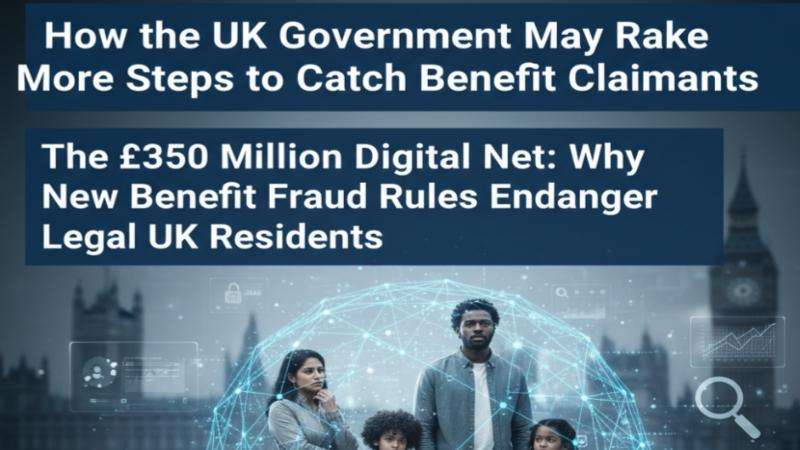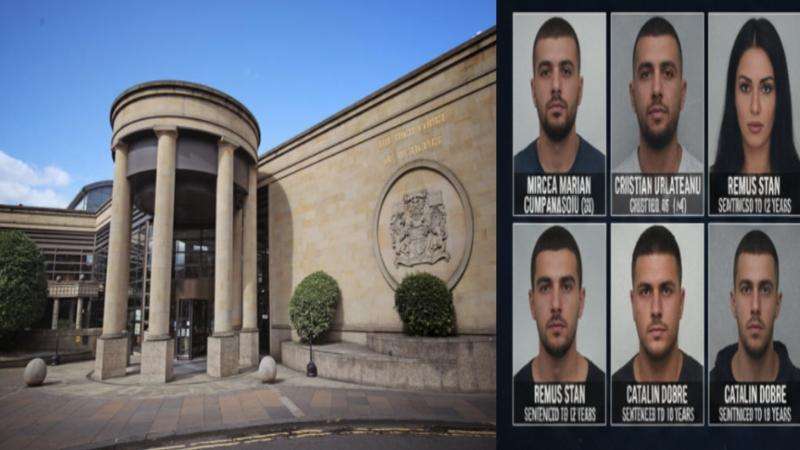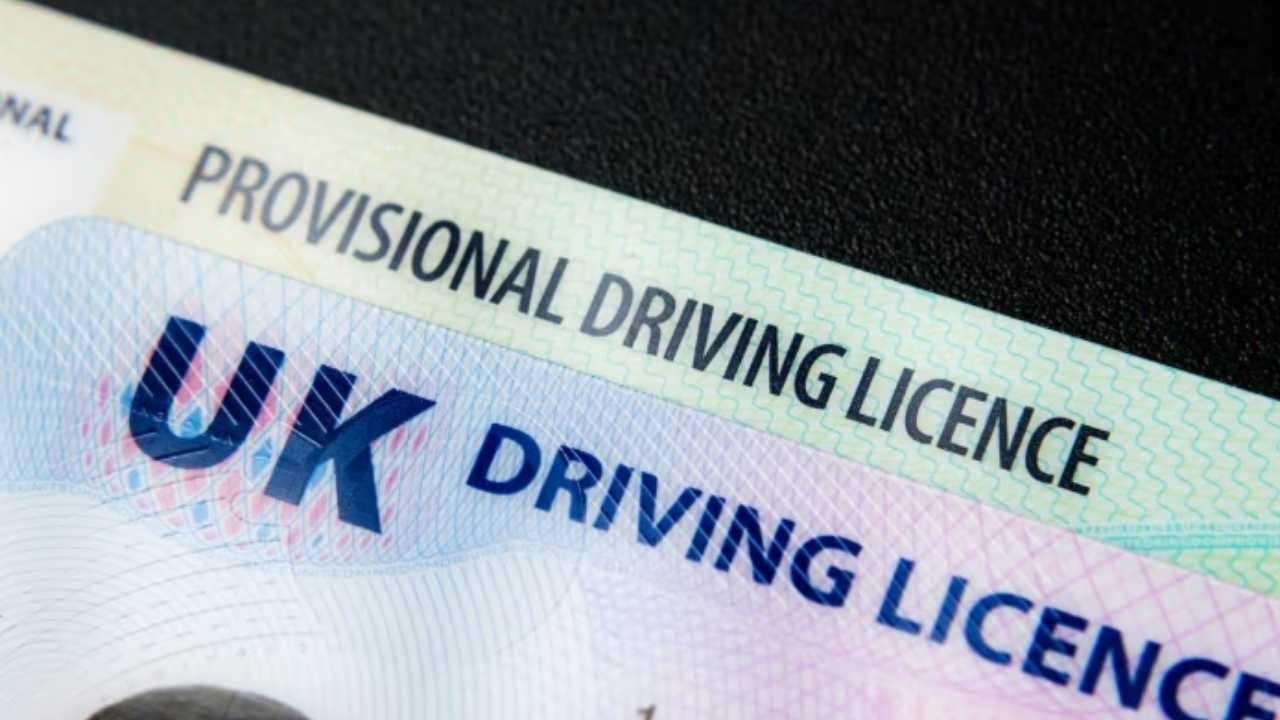An aggressive new anti-fraud system launched by HM Revenue and Customs (HMRC) to combat bogus Child Benefit claims has created significant distress across Northern Ireland, wrongly suspending benefits for hundreds of families who simply returned home from holidays via Dublin Airport (DUB). The extraordinary blunder stems from the scheme's failure to account for the unique travel patterns and the Common Travel Area (CTA) between the UK and the Republic of Ireland, which lacks routine passport checks.
The HMRC scheme, which began checking Child Benefit records against international travel data in August 2025 to track individuals who may have emigrated, flagged claimants who left the UK but whose "return" wasn't recorded at a Northern Ireland airport. Since many NI residents use Dublin Airport for its cheaper fares and wider flight options, traveling north by car, bus, or train, the system incorrectly assumed they had left the UK and not returned within the critical eight-week period, thus losing their entitlement.
The news investigation website, The Detail, uncovered the widespread administrative error. So far, 346 families received letters confirming their Child Benefit had been stopped due to presumed emigration.
Case Details and Latest HMRC Response-The human cost of the error is significant. Belfast NHS nurse, Mark Toal, and his wife Louise, had their Child Benefit stopped in October 2025 based on data from a trip taken in August 2022. Mr. Toal's return flight, which went from England to Dublin, was incorrectly interpreted as a departure from the UK without a return. He was forced to endure an exhaustive rectifying process, answering 70 questions and supplying extensive personal documentation, including boarding passes from three years prior, months of bank statements, and children's school/hospital records. Another claimant, who took a short holiday to Italy, faced similar demands after returning via Dublin.
Local politicians, including Sinn Féin MP Dáire Hughes, have condemned the scheme as "not fit for purpose" for Northern Ireland, highlighting the distress caused to innocent families.
HMRC has since acknowledged the mistake and apologised. In an update to the situation, they confirmed they have reinstated payments and fully closed inquiries for 134 families, with payments reinstated but inquiries still pending for 46 families. Worryingly, 166 families still have their payments suspended with ongoing investigations.
To prevent future errors, an HMRC spokesperson stated they will now check PAYE records before suspending Child Benefit and implement extra checks for those travelling to the Republic of Ireland.
Alarm for British Immigrant Families-The Child Benefit suspension debacle, despite being an error for NI families, is alarming for British immigrant families and all welfare claimants due to the underlying intrusive data-matching principles.
Heightened Scrutiny on Travel: The use of international travel data to track benefit claimants signals an increased level of state surveillance. For immigrant families who often travel abroad to visit family in their countries of origin, extended trips—which might be essential for maintaining family ties—could now automatically trigger suspicion and benefit suspension, regardless of their legitimate UK residency status.
Proof of Residency Burden: As seen with the NI families, reversing a wrongful suspension requires claimants to provide extensive, intrusive, and often difficult-to-gather personal documentation (years-old travel documents, bank statements, school records). For families who may struggle with language barriers, bureaucratic processes, or maintaining meticulous records, this administrative burden becomes a significant barrier to reinstating vital funds.
Precedent for Data Integration: This action establishes a precedent for the integration and matching of data across different government departments (HMRC, Home Office, Public Sector Fraud Authority) and third parties. This capability, while intended to catch genuine fraud, increases the risk of false positives that disproportionately affect groups with non-standard lifestyles or travel patterns, including those in the immigrant community.
Confirmed HMRC Universal Credit Fraud Examples-HMRC and the Department for Work and Pensions (DWP) actively pursue various types of benefit fraud. While the specific example of a Universal Credit claimant receiving cashback after a non-claimant bought their flight/holiday package with their own bank account is a recognised fraud vector, detailed, publicly confirmed case studies of this exact scenario (including the cashback element) are less common than broader fraud categories like:
Undeclared Capital/Savings: Claimants failing to report the true value of bank accounts, investments, or properties they own, particularly when these exceed the benefit-specific capital limits (e.g., the £16,000 limit for certain legacy benefits).
False Non-Cohabitation: A claimant maintaining they live alone to claim higher benefits, while in reality, they are living with a partner who has an undeclared income. The investigation often involves checks on bank accounts showing joint expenditures or shared residency bills.
Undeclared Income from Work: Claimants failing to declare all income from employment (including cash-in-hand or self-employment) to maintain or maximise benefit payments. Investigators often flag discrepancies between bank transactions and declared income.
In the case of third-party payment for holidays, the core of the fraud is the concealment of financial resources or a change in circumstances. If a non-claimant is regularly paying for major expenses like holidays or air travel, investigators might view this as:
Undeclared Income/Gift: A regular cash gift that should have been declared as capital or income.
Financial Link to a Partner: Evidence that the claimant is in a financial relationship with the third party (e.g., an undeclared partner with income).
The "cashback" element is a method of money laundering or concealing the source of funds—the claimant may be using the non-claimant's bank account to hide their own money or using the third party as an undeclared financial conduit.
Dazzling Dawn Analysis: The Escalation of Government Anti-Fraud Tactics
How the UK Government May Rake More Steps to Catch Benefit Claimants
The Dublin Airport error, while a massive failure of implementation, underscores the government's resolve to use data-matching technology to curb benefit fraud. As the UK government aims to save billions from the welfare budget, we at Dazzling Dawn predict a significant escalation in anti-fraud measures, focusing heavily on digital surveillance and third-party data acquisition.
Banking Data Access Legislation: The DWP/HMRC is likely to push harder for new legislation to grant them broader, more proactive access to third-party data from banks and other financial institutions. Instead of relying solely on existing data or tip-offs, this would enable automated, continuous monitoring of claimants' accounts for patterns suggesting undeclared capital, income, or lifestyle incompatible with their claimed poverty (e.g., frequent international transfers, large unexplained deposits, or substantial payments to luxury vendors).
Advanced AI and Predictive Analytics: The government will move beyond simple data-matching (like the travel data) to deploy advanced Artificial Intelligence (AI) and Machine Learning models. These systems will be designed to scan massive datasets—including social media activity, property ownership records, company director data, and financial transactions—to build predictive profiles of potential fraudsters, flagging claims even before a concrete 'change in circumstances' is reported.
Expansion of Mandatory Document Uploads: For Universal Credit and other digital claims, the government may expand the scope and frequency of mandatory document uploads (e.g., utility bills, tenancy agreements, bank statements) as a form of continuous, random audit, burdening claimants with proving their compliance more regularly.
Targeting Organised Crime and Intermediaries: A greater focus will be placed on organised fraud and the 'facilitators' who help people claim benefits fraudulently (e.g., setting up fake tenancies, providing false identities, or managing hidden finances). This will involve working closely with police and counter-terrorism units, granting DWP investigation officers greater powers for search, seizure, and arrest. The recent push for new legislation in the next parliament aims to modernise counter-fraud powers significantly.








.svg)




